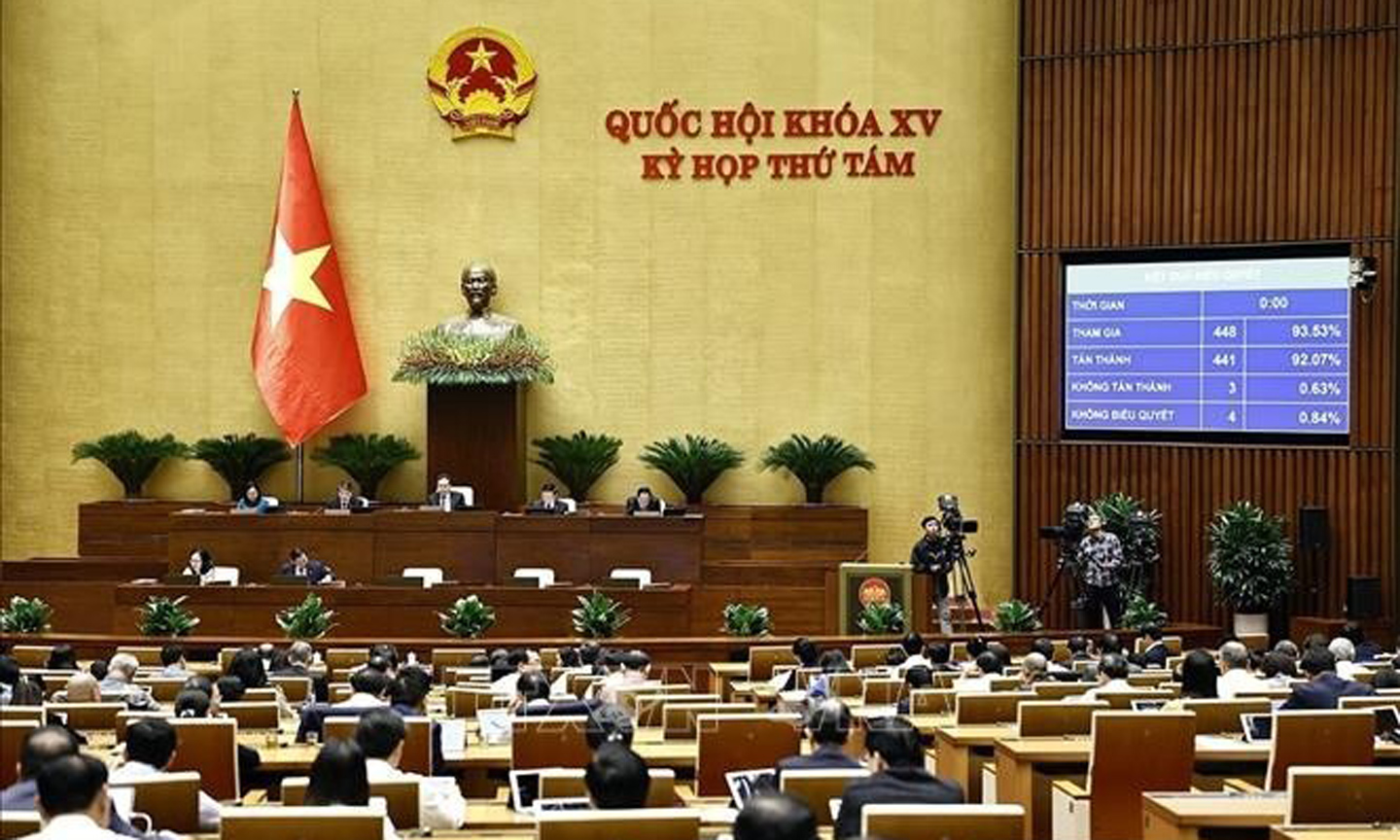NA passes revised Law on Public Investment
ABO/NDO- The 15th National Assembly (NA) on November 29 afternoon passed the revised Law on Public Investment with 441 out of 448 deputies voting in favour.
With seven chapters and 103 articles, the legal document provides regulations on state management of public investment; the management and use of public investment capital; the rights, obligations, and responsibilities of agencies, units, organisations, and individuals involved in public investment activities.
The law will take effect from January 1, 2025.
 |
| The 15th National Assembly (NA) on November 29 afternoon passes the revised Law on Public Investment with 441 out of 448 deputies voting in favour. (Photo: VNA). |
According to the revised law, sectors and fields using public investment include national defence; security and social order; education, training, and vocational education; science and technology; health care, population, and family; culture and information; radio, television, and news agency; sports; environmental protection; economic activities; and the operations of state agencies, public service units, political organisations, and socio-political organisations.
The law also stipulates major principles for public investment management, while prohibiting investment policies or adjustments to investment policies that do not align with approved strategies and plans, and those that fail to identify capital sources or balance capital.
Additionally, it prohibits the abuse of positions and powers to misappropriate, exploit, or engage in corruption in the management and use of public investment capital; offering, receiving, or brokering bribes; falsifying or distorting information, records, and documents related to investment decisions; and using public investment capital for ill purposes, for the wrong beneficiaries, or beyond standards and norms.
(Source: NDO)
 về đầu trang
về đầu trang







